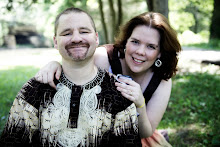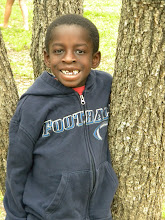Questions 4-6 (Celebrating Heritiage, and Homeschooling, and Fried Spiders)
4a. You have kids from different countries. Do you feel like that makes it harder or easier to celebrate their heritage?
We didn't plan on adopting 4 children from three countries, but that's how it ended up happening for us (due mostly to country closures). I don't know that it makes it harder or easier--it's just different. We don't do as many cultural activities as a family with only one extra heritage might do. I think we tend to focus on what it means to be a family with many heritages more than we spend a lot of time DOING things from each country. However, we talk and learn a LOT about each of the countries just going through daily lives. We have lots of books...watch videos...share pictures, etc.. Each of our kids learns about the others' heritage at the same level they learn about their own. We consider ourselves to be a Khmer-Vietnamese-Ghanaian-American family! I think it's worth noting that (especially where Africa is concerned) just because your kids come from the same country doesn't mean they have the same culture. Kendi and Bright are from tribes that are SUPER different from one another. If we adopted 4 children from Ghana, we may have 4 children with very different language and culture. =-)
4b. What kinds of things do you do to teach your kids about their first country?
Probably not nearly enough according to most standards out there. Like I said above, we don't go to lots of events. Our children are getting more interested in that as they get older, but when they were younger they did not want to experience their culture in that way. We read a lot about first countries. We watch any documentary or educational shows that come on about the country. We get together with other families with children from the same countries. Our home is decorated with all sorts of items from the three countries. Heritage is a part of our everyday conversations rather than something "extra" we do from time to time. However, now that the big ones are older we do plan on putting a bigger emphasis on Heritage Camp and such.
5. Do you feel that by homeschooling your kids are missing out on seeing that there are other non-traditional families out there?
I really like this question! Actually, I've found that a large percentage of homeschooling families in our area ARE non-traditional families! We are involved in a homeschooling group that has several adoptive families, and many large families. Even though in the adoption world 4 kids is not considered large, in "regular" world it is. There are several families that are made up like ours in our homeschooling community. Also, we make it a priority to go to a church that embraces diversity. Our neighborhood is very diverse as is our own extended family. We started out with our kids at the local public school, which was about 80% immigrant population. We thought that Taevy and Samren would like being in a school where most of the kids had brown skin and/or black hair. Instead, they came home asking "Why can't we be from Mexico like everybody else?! Why don't we speak Spanish?!" LOL! [There are no schools with a high Asian population in Tulsa, so we're out of luck there.] By homeschooling I also get the opportunity to incorporate learning about their heritage into our everyday school, if I wish. It's working very well for our family.
6. Have you ever tried or made fried spiders?
No and no! LOL! However, I have been to a market in Cambodia where they were selling them by the basket full. =-) Taevy is very much looking forward to her first trip to Cambodia, where she truly does plan to try a Fried Spider. She is a super adventurous eater (was begging me to buy pigs' feet at 3 years old) and really does want to try it.










0 comments:
Post a Comment